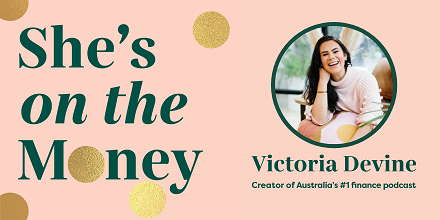Roger Kinsky is a Masters graduate of Sydney University and has over 50 years’ experience as a share investor and self-manages his extensive and profitable share portfolio. He is the author of nine books, including his new book, Starting With Shares, and is a tutor of share investing, online investing, and business technology.
Today, Roger Kinsky is on the blog to answer a few questions about his career and his new book. Read on!
Tell us a little bit about yourself
RK: I obtained my bachelors degree at age 20 and not long after graduating I travelled overseas for 5 years working in GB and USA. After returning to Australia, I married, bought my first house and we had 3 children. I worked in industry for some time in managerial positions before joining TAFE where I was soon promoted to Head Teacher. I worked for TAFE for 27 years and during this time I obtained my masters degree and wrote a number of published text books that were used primarily by advanced-education students.
When I retired I sold my Sydney home and moved to the beautiful Shoalhaven area in the South Coast. I continued to write books and conduct training courses in OHS, business education and shares. All my retirement funds are invested in shares through my SMSF as well as my comprehensive share portfolio and both have performed very well.
How did you get started investing in shares?
RK: At the time of my return to Australia after my overseas trip our economy was booming and we were making just about everything we needed. This included cars, whitegoods, machinery and electrical/electronic appliances. I believed in the Australian economy and wanted to get into Australian shares but I knew virtually nothing about share investing. A good mate was profitably dabbling in shares and was using a large and well respected firm of brokers so I followed his example and became a customer. In my first contact with a broker I asked him to recommend suitable shares. Unfortunately his advice wasn’t good and I lost money on this investment. However, I wasn’t unduly fazed and eventually changed brokers and continued building up my portfolio, investing any funds I could afford.
But a major change in share investing was on the way and by the mid 1990’s personal computers appeared in homes and the internet became accessible to most Australians. During this period, online brokers commenced operation and though I kept my account with the offline broker I dipped my toe into the water and started trading shares online. Now I couldn’t consult anyone about my share trading and investing decisions and to my surprise, my profits improved. So I gradually converted to the online mode and I now trade shares exclusively online using my own nous.
Have you ever made any “mistakes” when it comes to investing in shares?
RK: The answer to this question is actually ‘not often’ as I’ve seldom made mistakes. I’m usually very careful to avoid errors and keep accurate, up to date records and I double check all important details. Once I committed myself to purchasing a parcel of value 10 times what I wanted (or could afford) because I inadvertently added an extra zero to the purchase quantity. Occasionally when selling shares, I forgot to take account of shares I would receive in lieu of cash from the DRP and so was left with a small parcel of nuisance value shares. Nowadays these types of errors are rare.
If the question is posed as ‘have you ever made any share trades you wish you hadn’t made’; I have to admit the answer is ‘yes’. I’ve made more ‘regret’ trades during my many years of share trading and investing than I’d care to enumerate. However, they’ve usually been of small value and so the loss hasn’t substantially affected my overall profitability. Of course, the wisdom of hindsight is a wonderful thing … but not useful when moving forward.
Actually, a regret trade can be a good thing if you learn from the experience. Over the years I’ve accumulated a heap of experience that’s enabled me to formulate rules and strategies that really help to swing the probabilities in my favour and minimise regrets. Nowadays should I make a regret trade I conduct a post-mortem and try to ascertain what went wrong. Interestingly, I usually find that the most common reason was that I bent my own rules!
What is one thing you wish you had known when you began your investment journey?
The main thing I wish I knew when I started my investment journey is: I wish I’d known not to blindly follow the advice of so called ‘experts’ such as brokers, investment advisors or tipsters. In my developmental years I’d been acclimatised to blindly following advice of the ‘experts’; for example, doctors wrote prescriptions in Latin so the patient didn’t know the medications being prescribed and simply followed ‘doctors orders’. I’m afraid I adopted the same mindset when I first started investing in shares and because I knew very little, I blindly followed the advice of acknowledged ‘experts’.
I don’t do this now, and I always put any advice I receive through the ‘grist of the mill of my mind’. I don’t follow any share investing advice unless I’m satisfied that it complies with my own rules and strategies. In my books I urge my readers to do the same.
Bust an investing myth. What is a commonly misunderstood aspect of share investing?
In my opinion the main investing myth that needs to be busted is that shares are a very risky type of investment. One of the main reasons for this myth is that share prices are reported daily in the media – especially the nightly news bulletin which most people watch. On the other hand there are seldom any reports about longer term sharemarket growth.
In Australia we live in a free market economy and like any other commodity, share prices are determined by market forces of supply and demand. These vary from day to day and even within a day so share prices rise or fall as buyers and sellers enter and leave the market. In the longer term, history shows that the Australian sharemarket has had a growth trajectory despite setbacks caused by major world events such as the Covid pandemic, the GFC and the terrorist attacks in New York.
By investing in shares over the longer term and building up a sound portfolio of ‘quality’ shares, the risk becomes minimal. Certainly in the current climate of low interest rates, investing in shares compared to depositing spare funds in a bank account is a ‘no brainer’.
‘I don’t follow any share investing advice unless I’m satisfied that it complies with my own rules and strategies. In my books I urge my readers to do the same.’
What are the factors that set apart successful investors and those whom are not so successful?
There are several factors which set apart successful investors from the not-so-successful ones. Of these I’ve already hinted at the main ones in the answer to my previous question. Successful investors take a longer-term approach and consequently don’t worry about market hype or short term fluctuations in share prices. They invest in ‘quality’ shares and avoid frequent trading. I’ve been investing in shares for over 40 years and many shares in my portfolio are ones I’ve held for 20 years or more.
Most not-so-successful investors trade frequently as they try to make profits from short term price fluctuations. Numerous studies have shown that the higher the frequency of trading, the lower the overall profitability. Frequent trading usually results from a ‘grass is greener’ mentality, where a trader constantly switches between shares, believing more profits are possible with shares they don’t have. A very true philosophy was expressed by Warren Buffett (arguably the world’s best long term share investor) when he stated: ‘the stockmarket is designed to transfer wealth from the impatient to the patient’.
Of course it’s more exciting to make quick profits from a trade rather than to simply hang on to shares previously purchased. Gambling thrives because people can get addicted to the adrenalin buzz resulting from a quick win. Successful investors are disciplined and avoid getting sucked into seeking this high.
How does your latest book, Starting with Shares, differ from your previous books?
Starting with Shares differs from my previous books in a number of ways:
Ordinary, everyday (and sometimes colloquial) language is used to make the book understandable for novice investors and active voice is used throughout to make the book more interesting.
The main feature of this book compared to my other books (and indeed any other book about shares I’ve seen) is that it uses pictures as well as words. The book is peppered throughout with simple and often light-hearted illustrations, as well as the customary graphs and charts.
Another big difference is that I introduce a hypothetical novice investor (I’ve called her Michelle) and she appears throughout the book in many of the illustrations. The idea is that as she undertakes her investment journey, the reader will be able to identify with her.
The book provides the reader with all they need to know to make a success of share investing but not more so they don’t get bogged down in detail. Later if a reader wants to know more they can read one of my other more-comprehensive books.
As well as knowledge, I try to invoke a feeling of self-confidence in the reader so they won’t feel it necessary to refer to ‘experts’.
The book contains content that’s not in any of my other books. For example there’s a chapter comparing share investing and gambling and also a chapter where I suggest suitable Australian shares for a longer term portfolio.
How do you determine if shares are the right investment for you?
Shares are the right investment for anyone when the following conditions apply:
They have some spare cash they want to invest. This doesn’t have to be much, in fact as little as $500 is enough to get started.
They want their investment to grow at a faster rate than the inflation rate and certainly at a much higher rate than a bank deposit or fixed interest type of account.
They don’t have sufficient funds for a suitable deposit on real estate, or don’t want the worry of servicing a large loan. Also they don’t want the many hassles and costs associated with maintaining, buying or selling property.
They are prepared to invest for the longer term. While it’s true that speculative shares provide the possibility of spectacular short term gains, I advise readers to allocate only a relatively small proportion of their investing capital to them. The bulk of their capital should be invested in ‘quality’ shares as defined in the book.
Thanks Roger!
—Starting with Shares by Roger Kinsky (John Wiley & Sons) is out now.

Starting with Shares
A Beginner's Guide to Sharemarket Success
Starting your share investing journey is easier than you might think. You don't need a heap of capital, just a few basic rules and strategies.
In Starting With Shares you'll take your first steps toward building a profitable, sustainable portfolio. Written for beginners and packed with informative illustrations, straightforward tips and proven techniques, this essential guide will help you to become an effective and financially successful share investor...








 The 6 best books on property investing you need to read
The 6 best books on property investing you need to read  Read a Q&A with Victoria Devine | She’s on the Money
Read a Q&A with Victoria Devine | She’s on the Money
Comments
No comments